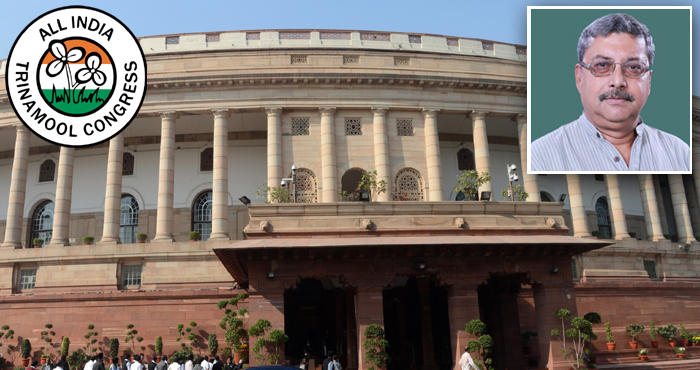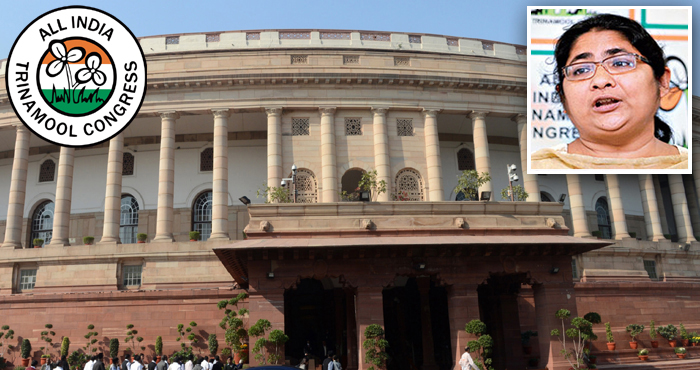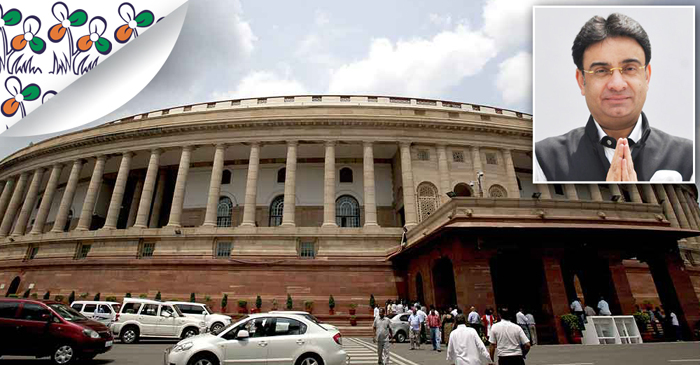Sir, let me begin by thanking you for giving me the opportunity to initiate this discussion on price rise. I would also thank my colleagues across the parties who have all jointly signed this notice, which we actually prepared even two weeks before Parliament began. It is good to have the Minister here who himself is a son of the soil – mitti ka log – so I’m sure he will take some corrective action. And in the spirit, I think that by the end of the discussion, which is around two-and-a-half hours, there should be some measurable benchmark to find out whether one, two or three months down the line, this discussion has become fruitful or has it just been a Short Duration Discussion in Rajya Sabha where there has been no action taken.
Inflation figures
Sir, one way of setting the platform for this discussion is to throw some light on some numbers of the Government, about retail inflation, food inflation, vegetable prices, pulses, etc. But I thought, Sir, that I would refrain from doing that – there are many colleagues who will speak on this. The numbers are all very well known – retail inflation is at a 21-month high, food inflation is up by 7.5%, vegetable prices are up, prices of pulses are up by 30-50%, prices of eggs are up and so are the prices of meat and fish.
The only silver lining here is that if we look closely, all the prices are up but it is even worse today to be a vegetarian in India than a non-vegetarian because comparatively, prices of meat and fish are more in control. The Minister has all these figures. So I am not going to waste much time by talking about these figures.
Benchmark for discussion
My colleagues from Trinamool Congress – we are a practical, and because we are practical we have our feet to the ground. That’s why, Sir, we weren’t surprised by the great verdict which we got in Bengal, which Mamata Di led us to two months ago; the reason being that we have our feet to the ground.
Today, Sir, through you, I want to share with the Minister, some data – not from the research library here or from my research team in Kolkata of the Trinamool Congress. I have here with me last week’s prices of dal, tomato, potato and other commodities collected from 30 markets across the country – Surajpur Market in Noida, Mandera Bazaar in Allahabad, local market in Rudrapur, Danteswari Market in Jagdalpur and Shastri Market in Raipur, both in Chhattisgarh, Khanna Market in Gobindgarh and Hall Gate Subji Mandi in Amritsar, both in in Punjab, markets in Indore, Bhopal, Jammu, Kalimpong, Kolkata (Gariahat market), Adra, Patna, Rampur Market in Gaya, and so on. Sir, with your permission, I want to table this here after my speech.
So when we come back to discuss the issue, rather than look at any other figures, we should look at these 30 markets. Let us make this a benchmark for this discussion. So I will lay this, Sir, on the table after I finish. This is the benchmark we should use and the issue has to be solved between the Centre and the States.
Problem of cartelisation
Sir, the first point I want to refer to, Sir, is to a trend and would like to refer to the Eco-Wrap report published by the State Bank of India. It tells us that potato prices increase every 2 years, the onion prices increase every 2.8 years and the tomato prices increase every 2.4 years. I want this Government to please take note of this report and investigate if there is possible cartelisation or a conscious decision to grow a particular crop in a year by vested interests.
I may be flagging this issue of price rise now but there were others who are much more articulate and erudite than me who flagged the same price rise issue in 2012. In May 2012, that person said, “Massive hike in petrol prices is a prime example of the failure of the Government. This will put a burden of hundreds of crores on them.” There is another message, Sir, on November 2013 by the same person, “Wherever I went, I saw that people are troubled by rising prices. Sadly, no leader is saying anything to assure people on the issue.”
Bhashan vs Action
Sir, these two tweets were made by the then Chief Minister of a State in western India on the issue of price rise. The then Chief Minister was very concerned about this issue and I am sure today in his new role he is equally concerned about this issue.
Sir, we have raised this issue today not for sharing brickbats but to find a solution. Sir, the bottomline is that this Government has to be responsible for the pain they are causing to people. Sir, there is considerable pain. This pain is not only restricted today to the rising prices of essential commodities but even to medicine prices, which we discussed in the morning.
Positive examples from States
One of the solutions we are offering, Sir, is to learn from some of the States that have made significant progress on how to curb price rise. Sir, my first suggestion, which my colleagues here in Parliament had made in December 2015, is when you are importing, you are importing from faraway African countries. The positive suggestion we made that time was, by all means import from there, but also import from the neighboring countries.
Sir, there are a couple of other things that are working very very well in Bengal. According to the Economic Survey 2015-16, the lowest rate of inflation in this country, less than 3%, is in Bengal. This was achieved due to monitoring of prices of the essential commodities by task forces we have set up. A lot of work has happened in Bengal but I am here not only to blow the trumpet of Bengal but also to share three or four significant schemes which are operational in Bengal, and which I believe can be taken as examples (Kanyashree, for example, has become Beti Bachao Beti Padhao).
There is a scheme called Sufal Bangla, through which fair price shops in Bengal are selling pulses and vegetables at a much lower rate because they are purchasing them directly from farmers. Sir, this is making a significant impact. My friends from different States, who will be speaking, will all have their own suggestions to offer.
Good luck wasted
Sir, I have two or three specific suggestions with which I will end. In this issue of price rise, what has bothered me most is that this Government has inherited good kismet, good luck (the global price of crude oil, which was at 110 dollars per barrel is now down to 45-47 dollars per barrel). But they have not been able to translate the good luck. There are at least six to seven countries where the price of petrol has come down or gone up by a maximum of five or ten cents. But in India, Sir, those benefits are not being passed on to the consumer. On one side they say ‘acche din’ but the ‘achhe din’ is not for the larger percentage of the people.
Follow the example of Bengal
Sir, I have three or four very simple suggestions to offer. One, to curb the distress selling by farmers, set up air-conditioned vehicles for transport of vegetables. We have 40-50 such vehicles in Bengal and it has worked, Sir. In Bengal, the retail price of potato is Rs 14 per kg which is being sold through the fair price vegetable shops. Sir, these are the big issues. Sir, there are test drives conducted by the State government to help control the prices.
Focus on basic issues
Sir, I have to say, this Government is very good at communicating on Twitter, Facebook and other social media sites. But when it comes to these basic issues, they have forgotten who are the people that gave them this historic mandate in 2014.
Sir, I will end now. All I have to say is that at the end of it all we will judge this government not by what figures they give.
Fudging data won’t help
I will end with a story. There was a person who had a problem: ‘what is two plus two’. So he went to a mathematician, who said that two plus two is four. The same person then went to an accountant, who told him that two plus two is four, plus minus 5 per cent. This person then went to an economist who was a part of the government. When he asked the economist what two plus two was, the economist closed the door, called him close, and made him sit. Then he asked the man slowly what he actually wanted the answer to be. This is the situation, Sir. Fudging of numbers is not the solution we want to see.
When we come back after 30 days or 60 days this government has to be responsible for bringing down the prices in those 30 odd markets of India, for which I have submitted the papers, and the rest of the country as well.
Thank you, Sir, for giving me this opportunity.






